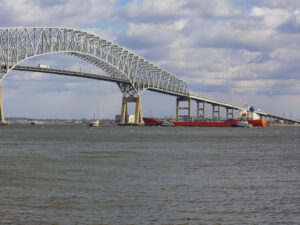The Washington Post has run a terrifying story this morning noting that one year after the Washington Metro’s deadliest accident ever safety reforms have been few and far between:
A year after the deadliest accident in Metro’s history, the transit authority’s safety record has worsened, and officials acknowledge that there has been too little progress.
There seems to be plenty of people to blame for the delay in making the Nation’s Capital’s transit system safe:
The crash was a catalyst for an examination of transit safety nationwide — spurring a push by the Obama administration for federal oversight legislation, a shakeup in Metro leadership and unparalleled scrutiny of the agency by the National Transportation Safety Board, which now has four open investigations into incidents at Metro.
So far, however, the legislation remains stalled in Congress, state oversight is fractured and weak, Metro lacks a permanent leadership team, and the NTSB’s final report on the cause of last June’s Red Line crash, which killed nine and injured dozens, isn’t expected until late July.
This is entirely unacceptable. Washingtonians–in fact, all U.S. citizens who come to Washington, DC each year–deserve much better.
Even the Chair of the National Transportation Safety Board has weighed in:
"There are significant deficiencies in their safety culture," said Deborah A.P. Hersman, chairman of the NTSB. "We do not see the frequency of accidents on other properties that we are seeing on Metro.
"The most disappointing . . . is when we issue recommendations and those issues do not get corrected. For us, that is a big concern about Metro," she said. Nine NTSB recommendations issued to Metro in July and September, in the aftermath of the accident, remain open, according to NTSB records.
Senator Barbara Mikulski (D-MD) has also evaluated the situation and, succinctly, said "We don’t want death by Metro any longer."
It is time for something to get done to make Metro safe. If the right people aren’t running the transit system, get them out. Bring in people who can get things done. But it is simply inexcusable that the system has been slow to change.
U.S. families ought to be able to come to the Nation’s capital and safely move throughout the city on the Metro. The idea that there is a culture at the organization that does not value safety is inexcusable.
Accidents happen. Tragedy happens. But if there is one more avoidable death on the Metro, the responsibility lies in the lap of those who have been hired to make the system safer.
@thumbnail.jpg)
Both an Emory School of Law graduate and MBA graduate of Goizueta Business School at Emory, Chris Nace focuses his practice on areas of medical malpractice, drug and product liability, motor vehicle accidents, wrongful death, employment discrimination and other negligence and personal injury matters.










Comments for this article are closed.